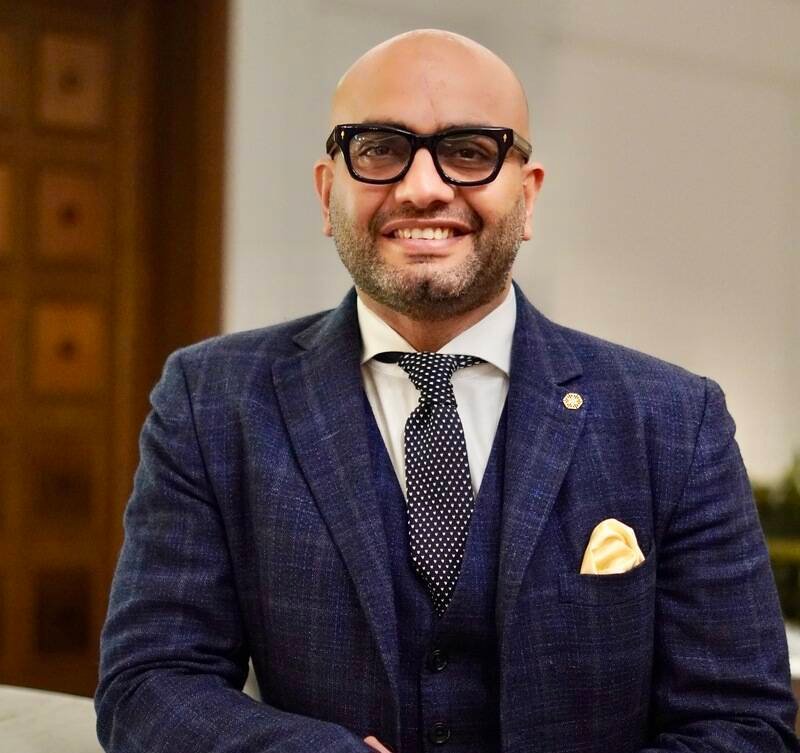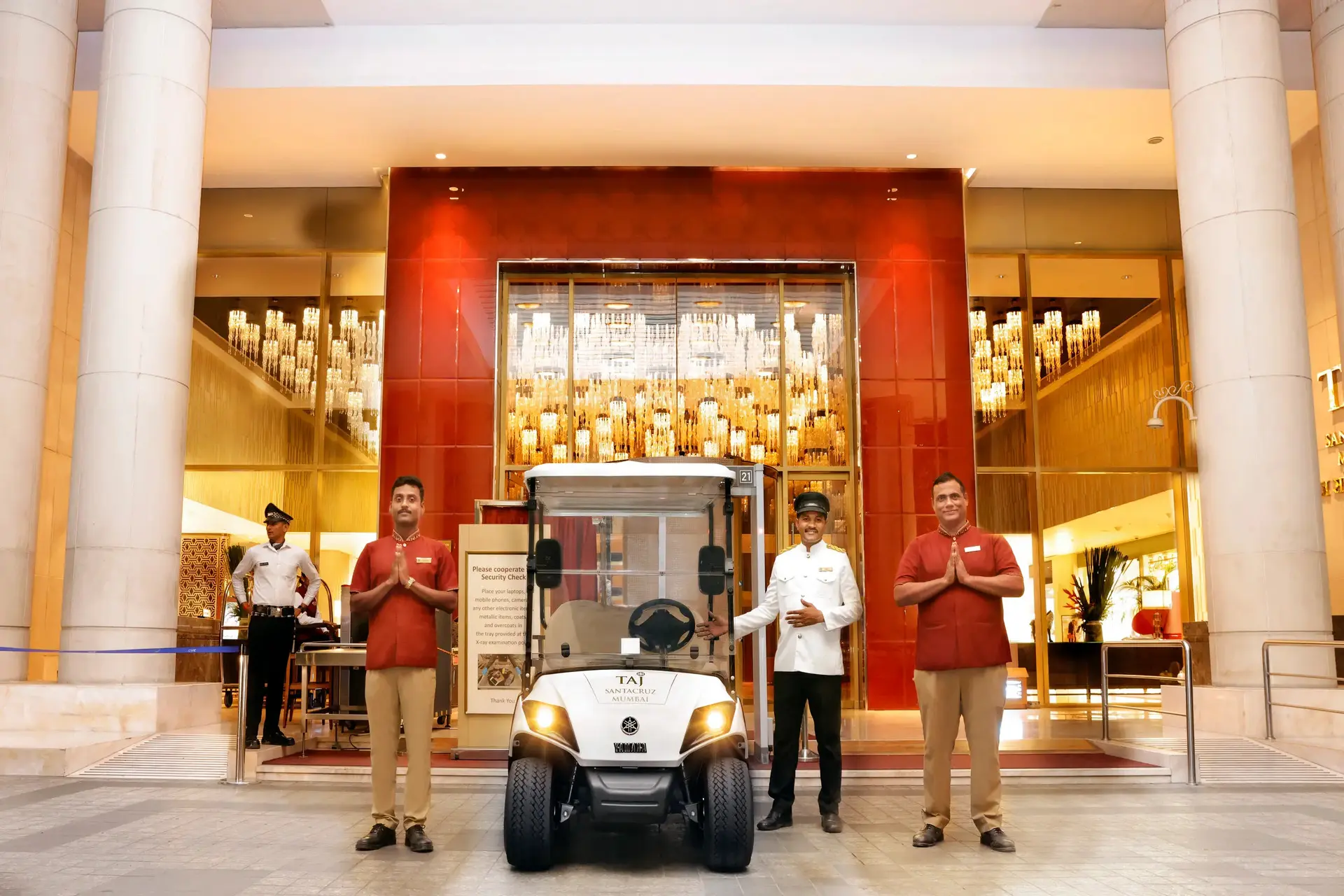
Taj Hotels, part of the Indian Hotels Company Limited (IHCL), is a globally renowned luxury hospitality brand that has been synonymous with opulence, exceptional service, and rich heritage since its inception in 1903. Founded by Jamsetji Tata, the brand’s flagship property, the Taj Mahal Palace in Mumbai, remains a symbol of Indian luxury and craftsmanship. Over the years, Taj has expanded both domestically and internationally, with a portfolio that spans city hotels, resorts, palaces, and unique heritage properties.
Global Expansion and Asset-Light Model
With over 350 hotels in operation and development, Taj’s expansion is a blend of domestic growth and strategic international ventures. While India remains the brand’s stronghold, with openings of two new hotels per month, Taj has steadily increased its footprint globally. The Middle East is a key focus, where Taj has several properties in Dubai and plans for more in Saudi Arabia and Bahrain. However, the brand is selective about its expansion, working with like-minded investors to ensure alignment with its core values.
Taj’s expansion is driven by an asset-light model, which focuses on management contracts rather than property ownership. This allows Taj to manage and operate hotels without the heavy financial burden of owning assets. The shift to an asset-light model has been a pivotal part of Taj’s growth strategy over the last decade, enabling it to focus on delivering unmatched service and luxury experiences worldwide.
Sustainability at the Core
Sustainability has become a cornerstone of Taj’s operations. The brand has implemented numerous initiatives aimed at reducing its environmental impact, such as eliminating single-use plastics in its Dubai properties and replacing them with glass bottles and biodegradable materials. Taj is also actively engaged in community-driven projects, from beach cleanups to tree planting, as part of its broader commitment to social responsibility.
The brand’s internal sustainability plan, called PAA (Path towards sustainability), reflects its long-term dedication to reducing carbon footprints and promoting environmentally friendly practices across all its properties globally.
Excellence in MICE and Weddings
Taj Hotels has also established itself as a leader in hosting large-scale MICE (Meetings, Incentives, Conferences, and Exhibitions) events and destination weddings. With state-of-the-art facilities and iconic venues, particularly in Dubai, the brand caters to luxury weddings and corporate events, contributing significantly to its revenue streams.

From its origins as a single hotel in Mumbai to a global symbol of luxury and sustainability, Taj Hotels continues to lead the hospitality industry while staying true to its Indian heritage and values.
In an exclusive interview at the Future Hospitality Summit (FHS) 2024, Saurabh Tiwari, Area Director, Middle East and CIS, Taj, Dubai, sat down with Apratim Ghoshal, Vice President and Senior Editor of Travel and Tour World. The discussion highlighted Taj Hotels’ expansion strategies, their innovative sustainability initiatives, and the significance of large-scale events and destination weddings in the Middle East. Tiwari’s insights provide a comprehensive look at how one of India’s most trusted brands is navigating the post-COVID hospitality landscape while staying true to its values and long-term vision.
FHS 2024: A Hub for Collaboration and Innovation
Tiwari began the conversation by praising the Future Hospitality Summit as a key gathering for industry leaders and investors alike. “FHS is a phenomenal event,” he said. “It’s got something for everybody—great speakers, insightful presentations, and numerous opportunities for collaboration. This event has been very successful for us, and we’re proud to be both partners and sponsors of FHS.”
As one of the leading hospitality brands, Taj Hotels uses this platform to not only network with potential investors but also stay ahead of market trends. With CEOs from top global companies sharing their insights on the evolving hospitality landscape, the summit serves as an ideal ground for Taj to align its future strategies.
Taj’s Global Expansion: Strategic and Selective
While Taj Hotels has a significant global presence, Tiwari emphasized that the company’s expansion is both strategic and selective. “We are not into flag-planting in every destination,” he explained. “We want to work with like-minded investors and owners who share our values.”

Taj currently operates around 350 hotels, with a heavy concentration in India. In recent years, their international expansion has been marked by careful planning and partnerships. “We have two hotels signed in Saudi Arabia and two in Bahrain,” Tiwari revealed. “In Dubai, we already have three successful hotels, and while there are more opportunities, we are waiting for the right partnerships.”
This cautious approach is central to Taj’s growth, ensuring that each new project aligns with the brand’s core values of luxury, service, and sustainability.
Asset-Light Model: A New Era for Taj
One of the key aspects of Taj’s expansion strategy is its focus on an asset-light model. Traditionally, hospitality brands owned large portfolios of properties. However, over the last decade, under the visionary leadership of their MD and CEO, Taj has shifted its focus toward managing and operating hotels on behalf of investors and owners.

“We manage hotels, operate them, but we don’t franchise,” Tiwari clarified. “We are very careful about our growth internationally and domestically. Our focus remains on management contracts, rather than owning properties outright.”
This shift allows Taj to concentrate on its core strengths—delivering world-class service and maintaining the iconic luxury that the brand is known for—without the heavy capital investment traditionally associated with hotel ownership.
Sustainability at the Heart of Operations
As the hospitality industry globally embraces sustainability, Taj Hotels has been proactive in implementing measures that reduce its environmental impact. “Sustainability is a buzzword for us, but more than that, it’s a responsibility,” Tiwari said.
At Taj’s hotels in Dubai, for example, single-use plastics have been completely phased out. “We use glass bottles for water, and we’ve eliminated plastic straws and paper napkins wherever possible,” Tiwari noted. “It’s not just about what we do internally. We also collaborate with local communities and associations for beach cleanups, sapling planting, and other community-driven initiatives.”
Taj has even introduced its own brand of water, aptly named PAA, which is bottled sustainably. These efforts are part of a broader push by the company to reduce its carbon footprint and minimize waste—initiatives that are especially important in markets like the UAE, where environmental concerns are at the forefront of government policies.
MICE and Destination Weddings: Key Drivers in the Middle East
The Middle East, and particularly Dubai, has become a hub for large-scale events and destination weddings. With world-class venues and infrastructure, the city has positioned itself as a leader in the Meetings, Incentives, Conferences, and Exhibitions (MICE) market. Taj’s properties in the region have capitalized on this demand by offering state-of-the-art event spaces.
“MICE is extremely profitable for us,” Tiwari said. “The margins are high, and Dubai is a perfect city for it, with Expo sites, arenas, and world-class meeting spaces.”
Taj Exotica, located on the Palm Jumeirah in Dubai, is one of the jewels in the company’s crown, offering an idyllic setting for destination weddings and large events. “We can host weddings and events for anywhere between three to 600 people,” Tiwari noted. “It’s a fantastic venue that reflects the grandeur and luxury that the Taj brand stands for.”
The destination wedding market is particularly vibrant in Dubai, with couples from India and other GCC countries choosing the city for its picturesque venues and top-notch services. “Weddings are a major revenue generator, and Dubai has become a preferred location for destination weddings, not just for Indian couples but for GCC nationals as well,” Tiwari added.
Looking Ahead: Growth and Community
As Taj Hotels continues to expand its presence in the Middle East, it does so with a strong commitment to community and sustainability. “We are proud of what we’ve achieved, but there’s always more to do,” Tiwari said. “The more we focus on sustainability, the more we realize the potential we have to make a difference—not just for our guests but for the environment and the communities in which we operate.”
Taj’s expansion in Saudi Arabia, Bahrain, and the continued success in Dubai are clear indicators that the brand is on an upward trajectory. And with its asset-light model and commitment to sustainability, Taj is well-positioned to continue its legacy of excellence in hospitality for years to come.
Future Hospitality Summit 2024: Shaping the Future of Global Hospitality

The Future Hospitality Summit (FHS) 2024 is a premier event that brings together the most influential leaders, investors, and stakeholders from the global hospitality industry. Held annually, the summit serves as a dynamic platform for discussing emerging trends, innovative business models, and the future direction of the hospitality sector. FHS 2024 continues this tradition by fostering collaboration and dialogue among industry experts from diverse regions, including the Middle East, Europe, and beyond.
The 2024 edition focuses on key topics such as sustainability, digital transformation, and the evolving needs of the modern traveler. The event features high-profile speakers, including CEOs, investors, and innovators, who provide valuable insights into the challenges and opportunities faced by the hospitality industry today. With discussions around the adoption of new technologies, the importance of sustainability in operations, and strategies to cater to a post-pandemic world, Future Hospitality Summit (FHS) 2024 promises to shape the future trajectory of global hospitality.
A highlight of the summit is the networking opportunities it provides. Attendees can interact with potential partners, investors, and collaborators, making it a hub for deal-making and innovation. Companies like Taj Hotels are leveraging the summit to showcase their growth plans, sustainability initiatives, and market strategies.
Future Hospitality Summit (FHS) 2024 is not just an industry event but a forward-looking gathering that equips hospitality leaders with the tools and insights needed to stay competitive and relevant in an ever-evolving global market.
Discover more from
Subscribe to get the latest posts sent to your email.






